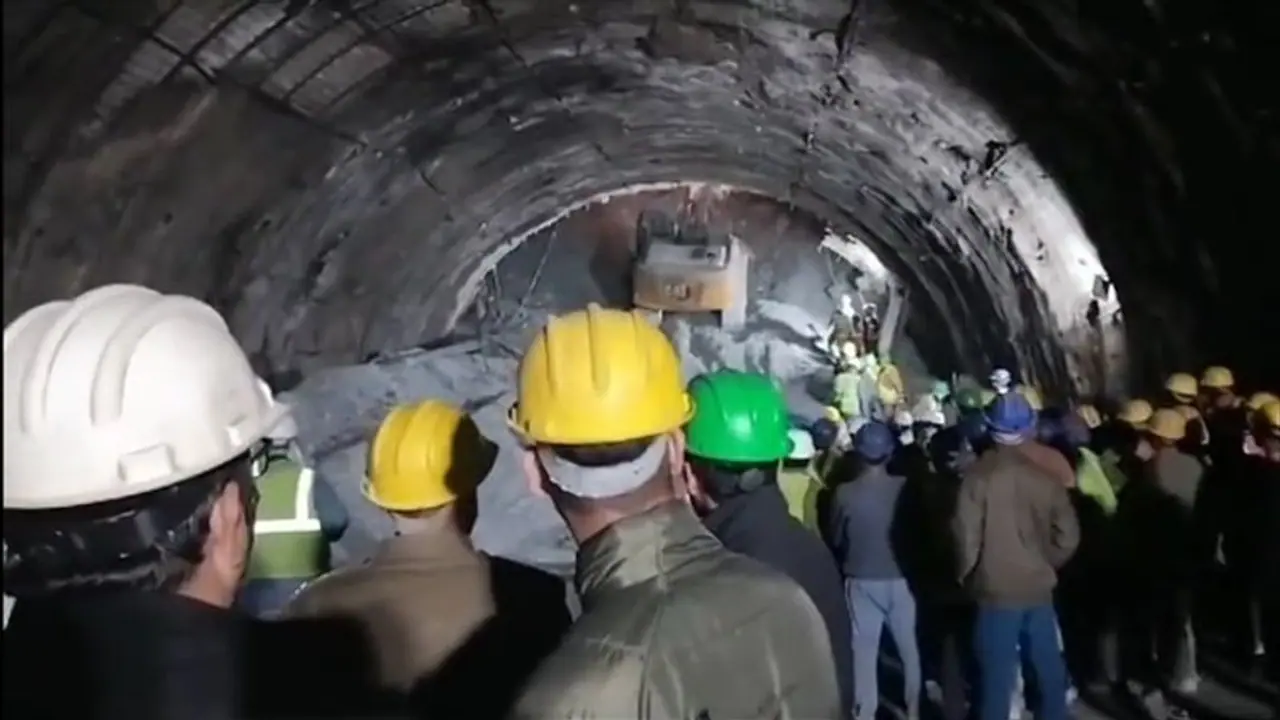Various government agencies, including NHIDCL, SJVNL, RVNL, THDCL, and ONGC, collaborated in the rescue operation, addressing challenges with multiple approaches such as horizontal and vertical drilling
Rescue efforts at the Silkyara tunnel in Uttarkashi made significant progress in saving 41 workers who were trapped when a 60-meter stretch on the Silkyara side of the under-construction tunnel collapsed on November 12. The situation was compounded by the discovery of steel rods within the debris, posing challenges to the initial rescue attempts.

National Disaster Response Force (NDRF) Director General Atul Karwal has announced that the workers will be individually evacuated using wheeled stretchers. This process will be facilitated through a large pipe that is currently being drilled to reach the trapped individuals.
The NDRF played a crucial role in cutting the steel rods that impeded the drilling machine's progress. The NDRF, under the leadership of a commandant, was tasked with rescuing the labourers who had been trapped for 10 days.
Recovery being rehearsed
A comprehensive medical response was initiated, with doctors stationed at the Chinyalisaur Community Health Centre for health check-ups, and ambulances strategically positioned for the safe transfer of rescued individuals. Chief Minister Pushkar Dhami personally oversaw the rescue operation, ensuring not only the extraction of trapped workers but also providing immediate medical attention.
Lieutenant General Syed Ata Hasnain, Member, NDMA said NDRF teams are at the site, conducting rehearsal and practice for the recovery of the trapped men. When the rescue is done, a medical checkup of workers will be done. Anyone with a serious medical condition will be airlifted and flown to AIIMS, Rishikesh.
A total of 41 ambulances – one per worker – have arrived at the site. Relatives of workers too can travel with the workers to the hospital, if they so desire. A 41-bed hospital was established at the Chinyalisaur Community Health Centre, and a temporary hospital with eight beds was set up at the location to address any urgent medical needs during the rescue operation.
Multi-Agency Rescue Operation
The rescue operation focused on a secured 2 km section of the tunnel, where completed concrete work ensured the safety of the workers. Electricity and water supply were operational in this area, and provisions, including food and medicines, were delivered through a dedicated 4-inch compressor pipeline.
Various government agencies, including NHIDCL, SJVNL, RVNL, THDCL, and ONGC, were mobilized for specific tasks to ensure the safe evacuation of the workers. Continuous communication was maintained to boost the morale of those trapped.
Key updates on the rescue operations included NHIDCL's completion of an additional lifeline pipeline for the supply of essential items, horizontal boring by NHIDCL, vertical drilling for rescue by SJVNL, horizontal drilling from Barkot side by THDCL, perpendicular-horizontal drilling by RVNL, vertical drilling toward Barkot end by ONGC, and drift tunnel construction by a joint team of THDCL, Army, Coal India, and NHIDCL.
Lieutenant General Hasnain said equipment and resources that were being brought from different places are continuing to come. As soon as the machines arrive, efforts through other means will also start, in the interest of having redundant options available, in case the primary approach through horizontal drilling does not meet with success.
The Border Roads Organization (BRO) was also involved in construction and supportive work, such as road cutting and approach roads for various drilling operations.
